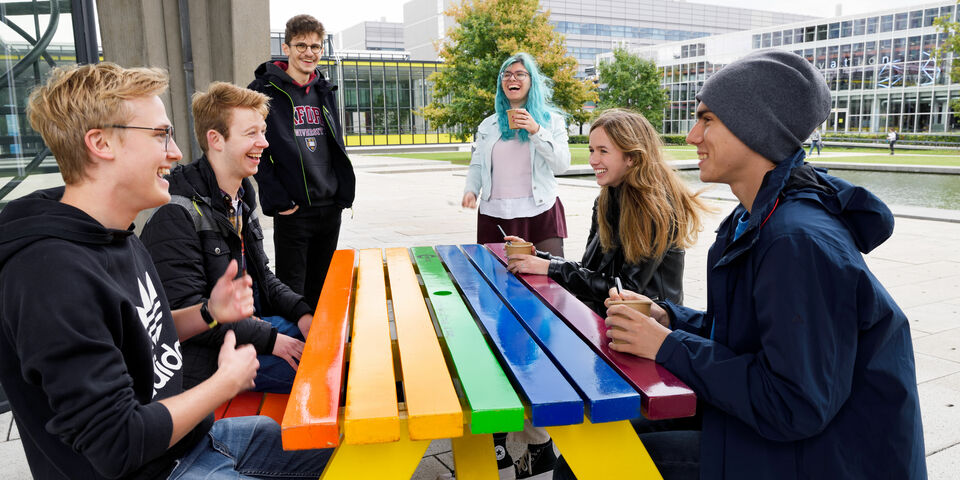“Enable students to work on their own well-being”
Charlie Raiser, Student Wellbeing Policy Officer, has worked on TU/e’s student well-being policy document for over eight months. It was recently discussed in a University Council meeting. Her overall conclusion: TU/e already has a lot to offer in terms of student well-being, but when it comes to efficient coordination of the different components and better communication, there is still a lot of room for improvement.
According to Raiser, the next step after the publication of her policy document is a proper evaluation of everything that is already in place with regard to student well-being and the things that are still being worked on. Raiser: “For everything we’re already doing on this front, we have to ask ourselves the question whether it’s valuable. In addition, we need to start coordinating things better and we need to improve communication about this.”
What definitely helps at the moment, she says, is that there is money available for promoting increased student well-being; the so-called NPO funds – government funding for educational recovery and development during and after Covid-19. “At TU/e, we use those extra funds for our mentoring program, among other things”, Raiser explains. “In this program, students who have been trained by academic advisors mentor newcomers to our university. Initially, this program lasted only six months, but the NPO funds made it possible to offer twelve months of guidance. We noticed that students would sometimes feel like they were being left to their own devices when they lost their guidance after six months.”
Sympathetic ear
Raiser also notes that there are many courses available on the online platform set up by the university in collaboration with e-Health company Gezondeboel. These are offered in both Dutch and English and cover topics such as fear of failure, loneliness, living in another culture, communicating and sensible drinking. “Our student psychologists can also make use of these courses for students who come to them for help.”
Within the student community, there is now also a group of students who can offer a listening ear if a student is struggling with something, Raiser says. “They act as a confidential ‘peer’ whom you can talk to and they know where to direct you if necessary.”
Looking to the future, Raiser says that the evaluation of everything that is already in place with regard to student well-being should serve as a starting point for a good concrete plan later on. “Many people within our university are working on this area in different places, and we’re currently trying to connect them. This way, we can set up a broad network of support staff. We also want to use a well-being survey for our students. Our plan is to send in out in October or November of this year. This, together with other surveys, such as the one conducted by the National Institute for Public Health and the Environment (RIVM), will provide us with a great deal of information and feedback. We intend to conduct this survey every two years in order to find out if there might be certain trends in terms of student well-being.”
Communication
According to Raiser, a new perspective is needed when it comes to communication about student well-being. “We need to adapt to the way the current generation of students receives information. Large chunks of text are less effective with this target group, so we need to turn to visuals and social media such as Instagram.”
All this, she says, should become the foundation upon which a concrete plan for the promotion of student well-being will be built. That well-being has to exist on five levels, as stated in her policy document: social well-being (‘feeling accepted and included in the TU/e community’), emotional and mental well-being (‘being able to develop resistance to deal with positive and negative emotions’), academic well-being (‘acquiring knowledge and skills that correspond to the goals you have set for yourself’), financial well-being (‘being able to autonomously manage your own financial situation’) and physical well-being (‘striving for a physically healthy lifestyle’).
However, it is certainly not the intention to hold students’ hands too much. “These are things that they themselves have a great deal of influence over. The university has a responsibility to support students in their search for information and opportunities, but ultimately, they have to be willing and able to do it themselves.”
Raiser is pleased with the steps taken by TU/e this year, and will continue to work on the implementation next year. “I’d like to further pursue this and oversee the implementation, thereby giving our students the ability to work on their own well-being.”


Discussion